1. resources
1.1. managing stress in medical school
1.2. medical students well being
1.3. 3
1.4. 4
1.5. Stress Management for Patient and Physician
1.6. ideas to read about
1.6.1. student led stress management program
1.6.2. mindfulness based stress reduction
2. outline
2.1. (Ghannam) introduction
2.1.1. Definitions
2.1.1.1. What is stress?
2.1.1.2. What is stress?
2.1.1.2.1. oxford and medical definitions
2.1.1.2.2. stress v.s. anxiety
2.1.2. Causes
2.1.2.1. classify it into external and internal. Focus on the concepts and the physiology. talks about significance of internal causes. Do not be specific to medical students or doctors.
2.1.3. Physiology
2.1.3.1. picture
2.1.4. Magnitude
2.1.4.1. How common and what are the results (in general)
2.1.5. The video
2.1.6. Concept of good v.s. bad stress
2.2. (Gain) stress in
2.2.1. medical students
2.2.1.1. talk in detail and discuss with students the stressors we face as medical students and their effect on personal life and academic performance
2.2.2. healthcare professionals
2.2.2.1. talk in detail and discuss with students about the stress we will face in the future as physicians, and what are the results
2.2.2.1.1. which specialities are most stressful?
2.3. (Haneef) management of stress
2.3.1. Declare that this is an interactive session
2.3.1.1. Ghannam discussed negative and positive aspects of stress
2.3.1.2. Gain discussed our experience with stress and time pressure
2.3.1.3. I will discuss practical methods of coping with stress
2.3.2. lifestyle modifications
2.3.2.1. Decrease or Discontinue Caffeine
2.3.2.1.1. drug, a strong stimulant that actually generates a stress reaction in the body
2.3.2.1.2. get it out of the system long enough to see if there is a difference in how they feel (3 weeks)
2.3.2.1.3. They feel more relaxed, less jittery or nervous, sleep better, have more energy (a paradox, since you are removing a stimulant), less heartburn and fewer muscle aches
2.3.2.1.4. Patients must wean themselves gradually or they will get migraine-type withdrawal headaches
2.3.2.2. Sleep
2.3.2.2.1. sleeping early is better that sleeping in
2.3.2.2.2. naps are effective if short and not in the evening..
2.3.2.2.3. no naps if you are insomniac
2.3.2.3. Regular Exercise
2.3.2.3.1. any form of aerobic exercise that suits you
2.3.2.3.2. stress is the state of increased arousal necessary for an organism to defend itself at a time of danger
2.3.2.3.3. unlike our ancestors, running away is not the appropriate response needed in the modern stress!
2.3.2.3.4. Exercise is the most logical way to dissipate this excess energy
2.3.2.3.5. regular exercise can drain off ongoing stress and keep things under control
2.3.2.3.6. proven to be effective against mild depression and it makes you feel good
2.3.2.4. Relaxation/Meditation
2.3.2.4.1. "the relaxation response” is inherited and it does the opposite of the stress response
2.3.2.4.2. relaxation response needs to be brought forth by intention
2.3.2.4.3. very useful when you cannot exercise
2.3.2.5. Time-outs and Leisure
2.3.2.5.1. pace yourself
2.3.2.5.2. ultradian rhythms: like REM sleep, 20 minutes every 90 minutes
2.3.2.5.3. enjoy your leisure time, do not feel guilty for it
2.3.3. mentality
2.3.3.1. Realistic Expectations
2.3.3.1.1. the experience of driving in slow-moving traffic
2.3.3.1.2. increased feeling of control because you can plan and prepare yourself
2.3.3.1.3. "Expect less from people who cannot give you what you want. It makes it easier - not great, just less upsetting."
2.3.3.2. Reframing
2.3.3.2.1. there are many ways to interpret the same situation
2.3.3.2.2. understanding the behavior of other people.
2.3.3.2.3. remember the good things, the half full
2.3.3.2.4. "Assuming your boss is not just evil or malicious, why do you think she might be acting like this?"
2.3.3.2.5. reframing does not change the external reality but simply helps people view things differently (and less stressfully)
2.3.3.3. Belief Systems
2.3.3.3.1. thinking that things have to done in a certain way not the other for no other reason except that you believe this subconsciously
2.3.3.3.2. We have beliefs about how things are, how people should behave and about ourselves
2.3.3.3.3. They affect the way you behave. Like doing everything yourself
2.3.3.3.4. They can make conflicts with people around you
2.3.3.4. Humor
2.3.3.4.1. Humor is a wonderful stress reducer, an antidote to upsets.
2.3.3.4.2. Humor is an individual thing - what is funny to one individual may be hurtful to another.
2.3.4. support
2.3.4.1. Ventilation/Support System
2.3.4.1.1. You need someone to talk to
2.3.4.1.2. Sometimes visiting a psychiatrist helps just because he lets you talk and looks caring
2.3.4.1.3. Can be family member or friend, could be a group of trust
2.3.4.1.4. Another way to ventilate is writing
2.3.4.2. Professional help
2.3.4.2.1. counseling program in KSAU-HS
2.3.5. your experience & direct tips
2.3.5.1. This should be an interactive session
